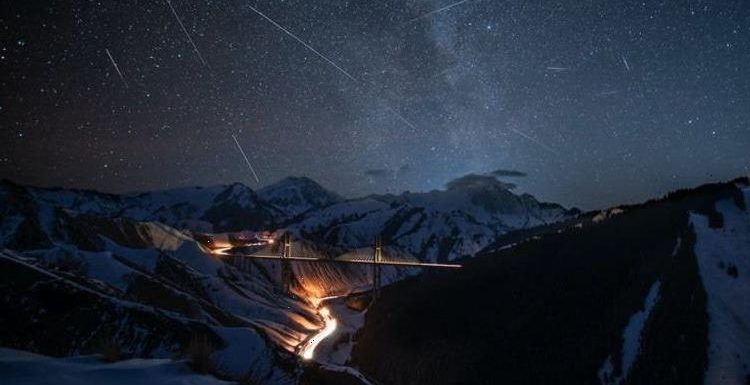
NASA release information on 'prolific' Geminids meteor shower
We use your sign-up to provide content in ways you’ve consented to and to improve our understanding of you. This may include adverts from us and 3rd parties based on our understanding. You can unsubscribe at any time. More info
Meteors exist in clusters at several points on the Earth’s orbit around the Sun, with showers triggered as they enter the planet’s atmosphere. The Geminids are one of the most populous displays of the 12 observed every year, with up to 120 meteors passing through the night’s sky during its 13-day duration. People can watch the shower tonight, but they may have missed it at its most spectacular.
When can you watch the Geminids tonight?
Astronomers observe the Geminids between December 3 and 16 every year, and they peak on December 14.
During the shower’s peak, people could see up to 100 meteors tonight.
Observers in the UK will be able to watch provided the conditions align.


Budding astronomers can find them in the sky near the Gemini constellation, which lies up and to the left from Orion’s Belt.
Naturally, people will only catch a glimpse if they have clear skies tonight, which, due to the season, may prove hard to come by.
Those lucky enough to enjoy a favourable forecast should try and get away from light pollution and settle on higher ground.
People need only their naked eye, but they should avoid looking directly at any incoming meteors.

According to the Royal Greenwich Observatory, the Geminids show “good activity” before midnight.
Unfortunately, their most active time was midnight this morning.
Speaking to Science Focus, Simon Green, a professor of planetary and space science at Open University who discovered the source of the Geminids, said night owls will catch them at their most spectacular.
He said the Gemini constellation is highest in the sky between 1am and 2am.

The sky is darkest around 3.30am, which will provide an ideal viewing opportunity with the constellation still high.
Anyone who missed the peak has not run out of opportunities, as the shower will continue less intensely for another couple of days.
And the Geminids aren’t the last meteors on course to grace the skies in 2021.
The last shower, the Ursids, will arrive later this week.
They debut on December 17 and will continue for nine days until December 26.
Their maximum falls between December 22 and 23, but people will have fewer opportunities to watch this time around.
The Ursids, although associated with the Swift-Tuttle, are less populated than some of the other showers.
People are likely to see just under 10 “sparse” comets per hour.
Source: Read Full Article